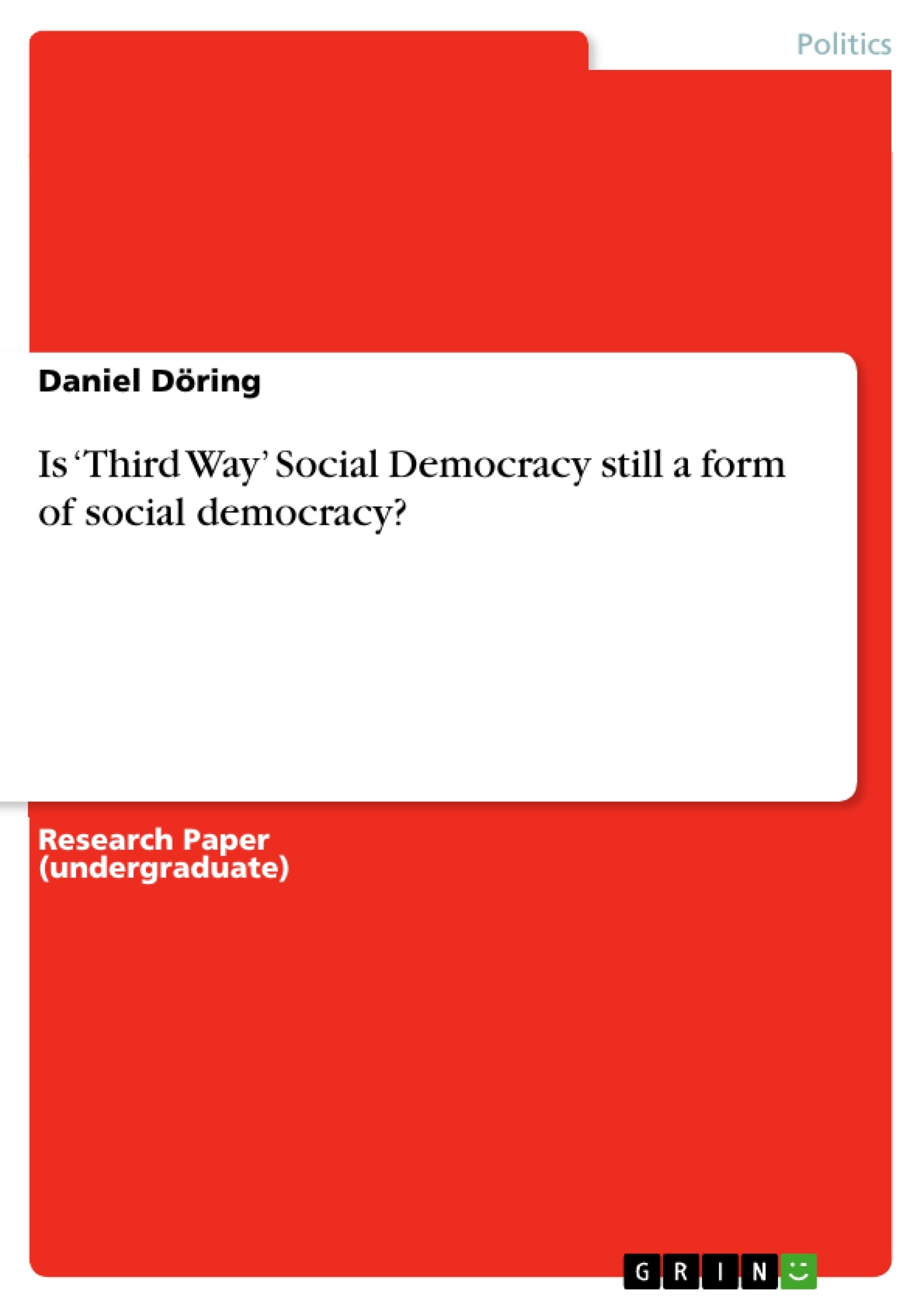The concept of the “third way” stands broadly for an alternative middle way between two extreme positions. Known as “third way” is a middle form of socialism and capitalism, e.g. competition socialism, or new concepts of politics and economics, e.g. the free economy or the ordoliberalism. This shows that the “third way” can focus on economic, political and also cultural aspects, basically a mixture of it all.
There are many different definitions for the “third way” of social democracy. This is on one side because the discussion about that is already happening for a long time and on the other because it is not lead uniformly. The term already appeared in context with the Euro communism or the “socialism of human countenance” (Alexander Dubcek) of the Prague Spring. But in that case it was always meant to be a middle way between communism and existing socialism. In the seventies of the 20th century the concept of “tredje vägen”, the “third way” was shaped by Sweden’s social democratic party and Olaf Palme (then prime minister of Sweden). However, the concept of today’s “third way” is a middle course between unstrained turbo capitalism of neo-liberal stamping and the welfare state of Keynesian traditional stamping.
Inhaltsverzeichnis
- "Third Way" What does it mean?
- Motives of a "Third Way" Social Democracy
- The Basic Concept of the "Third Way"
- The Third Way
- "Third Way" Criticism
- New Labour and "The Third Way"
Zielsetzung und Themenschwerpunkte
This essay examines the concept of "Third Way" Social Democracy, specifically focusing on its meaning, origins, and potential as a form of social democracy in the context of the European Union.
- The evolution of "Third Way" Social Democracy
- The motivations behind the rise of "Third Way" thinking
- The key features and principles of "Third Way" Social Democracy
- Criticism of "Third Way" Social Democracy
- The example of New Labour and its adoption of "Third Way" principles
Zusammenfassung der Kapitel
- "Third Way" What does it mean?: This chapter introduces the concept of "Third Way" Social Democracy, discussing its roots in different historical contexts and highlighting its core idea of finding a middle ground between traditional socialism and capitalism. It explores various interpretations of "Third Way" and its application to political, economic, and cultural aspects.
- Motives of a "Third Way" Social Democracy: This chapter delves into the reasons behind the emergence of "Third Way" thinking. It examines the challenges faced by traditional social democracy in the late 20th century, particularly in light of globalization and changing social structures. It discusses the decline of the working class as a traditional social democratic base and the impact of globalization on the ability of states to regulate markets.
Schlüsselwörter
This essay focuses on key concepts such as social democracy, "Third Way" politics, globalization, welfare state, neoliberalism, Keynesian economics, and the transformation of social democratic parties. The essay explores the interplay of these concepts and their implications for the contemporary political landscape, particularly in the European Union.
Frequently Asked Questions
What does the term "Third Way" mean in social democracy?
The "Third Way" represents a middle ground between traditional socialism and neoliberal capitalism. It seeks to balance social justice with market efficiency and individual responsibility.
What were the motives for the rise of the "Third Way"?
The rise was driven by the challenges of globalization, the decline of the traditional working class, and the perceived inability of the Keynesian welfare state to respond to modern economic shifts in the late 20th century.
How is New Labour related to the "Third Way"?
New Labour, under leaders like Tony Blair, is a prime example of the adoption of "Third Way" principles, moving the party away from traditional state-centered policies toward a more market-friendly approach.
What are the main criticisms of the "Third Way"?
Critics argue that the "Third Way" abandons core social democratic values, leans too heavily toward neoliberalism, and fails to adequately address economic inequality.
Is the "Third Way" still considered a form of social democracy?
This is a central question of the essay. While it retains some social democratic goals, its methods—such as competition socialism and market-led growth—mark a significant departure from traditional 20th-century models.
- Citation du texte
- BSc Daniel Döring (Auteur), 2006, Is ‘Third Way’ Social Democracy still a form of social democracy?, Munich, GRIN Verlag, https://www.grin.com/document/79529



